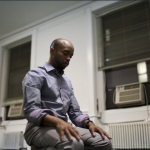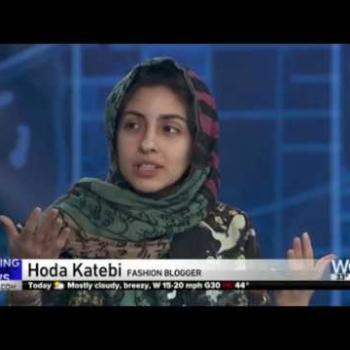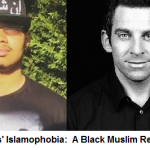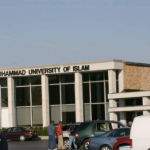The Poetry of Black Muslim Women: Nana Asmau and Philis Wheatley.
 This Khutba will explore the writings and poetry of West African Islamic scholar, Nana Asmau and discuss the strong role Islam played in the education of black women throughout West Africa. It will further discuss how we can continue the vision of Nana Asmau in crafting environments where our sisters are empowered and not stifled by the sexism which plagues contemporary Muslim communities.
This Khutba will explore the writings and poetry of West African Islamic scholar, Nana Asmau and discuss the strong role Islam played in the education of black women throughout West Africa. It will further discuss how we can continue the vision of Nana Asmau in crafting environments where our sisters are empowered and not stifled by the sexism which plagues contemporary Muslim communities.
Malcolm X once stated,””The most disrespected person in America is the Black woman, the most unprotected person in America is the Black woman. The most neglected person in America is the Black woman.”
This Khutba will also contain a Islamic centered critique of white supremacist-patriarchy through analyzing the life of Phillis Wheatley. Having been kidnapped from West Africa and taken to the Americas at the tender age of seven, Phillis Wheatley became world renowned for being the first published African-American poet.
From her geographic origins emanating from Gambia, to her ability to write Arabic as a young kid, to her most likely ethnic background being Fulani, Professor Will Harris indicates that this could very well mean the “progenitor of African-American literature probably was Muslim.” The story of Phillis Wheatley presents a major critique of the “white male savior complex” by which western governments feign concern for Muslim women. While positing itself as the savior of Muslim women, at the foundation of the United States, we have a Black Muslim woman subjected to immense violence in the Middle Passages and forcibly converted to Christianity.
Will Harris notes Wheatley further notes her “rapid progress in learning to read, write, and speak English was likely the result of nominal instruction in language acquisition she already obtained in an Islamic school system before being kidnapped into slavery.” Philis Wheatley, was a black woman whose early Islamic education was completely disrupted as a result of the transatlantic slave trade. In light of this, we will posit an Islamic critique of white supremacist-patriarchy in the United States.
Next: The Integral Role of Black Americans in Islamic Revival.












